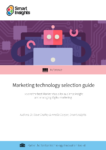Chart of the Week: Almost a third of marketers would spend extra budget on data, analytics and marketing tech to meet the growing requirement for personalization
With the world of digital marketing moving at a faster pace than ever, it is growing increasingly important to assign budget to those areas that could provide the biggest benefits.
Arguably, this means investment in areas such as personalization and automation, especially as personalization is being seen as key to improving the quality of leads being generated.
Download our Business Resource –Marketing technology selection guide
This guide will help you harness the power of the available digital tools.
Access the Marketing technology selection guide
According to Merkle’s latest Customer Engagement Report, data, technology and analytics are deemed to be the most important areas at the moment, coming ahead of areas like digital (16%), paid media (10%) and search (10%).
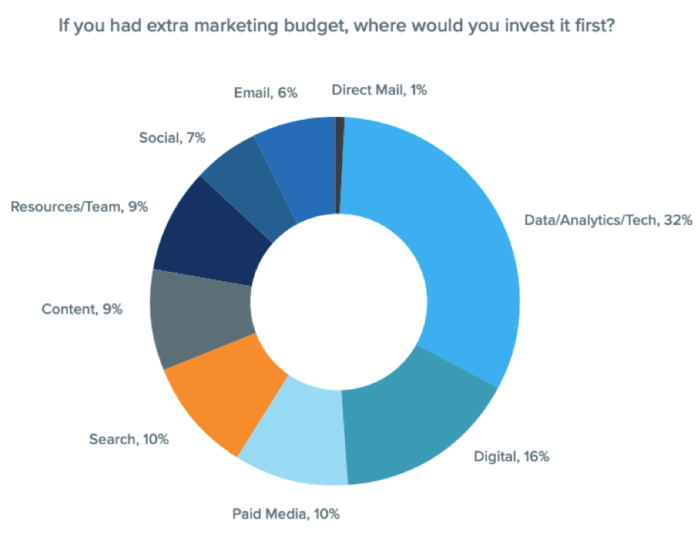
Comparatively, social media (7%), email (6%) and direct mail (1%) were much lower on the budget priorities list. This is likely due to increased email and social media budgets over the last few years, while direct mail no longer seems a go-to option for many marketers.
Email is still important though
Despite the low percentage of marketers saying they would invest extra budget into email, it still remains a valued channel. In fact, the research reveals that 68% of marketers prioritize email addresses over other forms of customer data, likely due to the high engagement levels it offers, as well as the high ROI of email.
Email marketing can be used as a nurturing tactic, helping to increase conversions and turn leads into customers, as well as being a vital aspect of re-engagement campaigns. In fact, over half (52%) of survey respondents said that email is the most valuable method of marketing when it comes to retaining customers.
Having customer email addresses ensures marketers have a way to talk to them directly, deliver personalized messages (which 78% of marketers have done using customer data) and keep them engaged. All of this shows the value in acquiring email data.

The decline direct mail
As highlighted by the fact that only 1% of marketers would invest extra budget in it, direct mail as a marketing tactic is on the decline. In fact, most of the survey respondents (59%) have either never invested in direct mail or are now reducing their budget for it.
Just 20% said their direct mail budgets have remained the same with a further 20% saying they have increased.
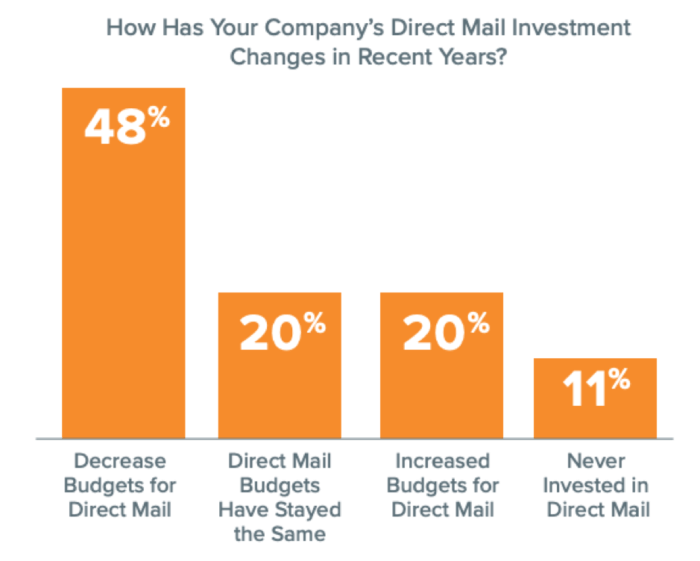
Those reducing direct mail budgets or not investing at all could be missing out on some great opportunities, even in digital marketing world. Effectively targeting your audience and delivering personalized direct mail can see a high rate of engagement, with millennials being more likely to review direct mail than any other generation, according to Forbes.
As well as sending offers through the mail, brands can give customers samples of new products, help them celebrate special occasions or even send something to say thank you to loyal customers. All of these can mean their direct mail efforts are posted about on social media, providing brand awareness and important social proof – something card company Thortful benefitted from when it recently sent out thank you cards to customers.
How are marketers managing tech needs?
Considering so much extra budget would be earmarked for tech, analytics and data, and personalization is a key factor currently, it is interesting to see how marketers are managing marketing technology and data.
Many areas of modern digital marketing require a group of technology components, as well as specialized skills to set everything up, maintain this setup and manage projects. Understandably, many marketers rely on outsourcing in order to utilize the skills they need but don’t have in house.
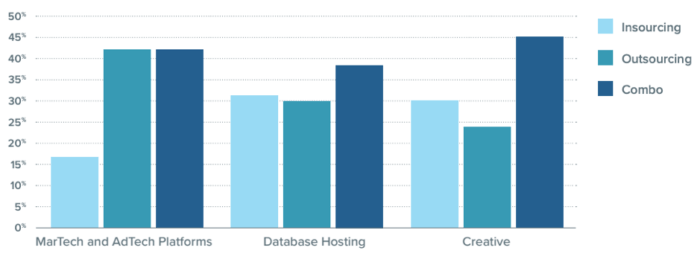
Between 30% and 40% of survey respondents say they are outsourcing their platform and database support. However, the trend for keeping more simple activities in-house remains strong, with the vast majority of marketers managing both loyally programs and promotions within their organizations.
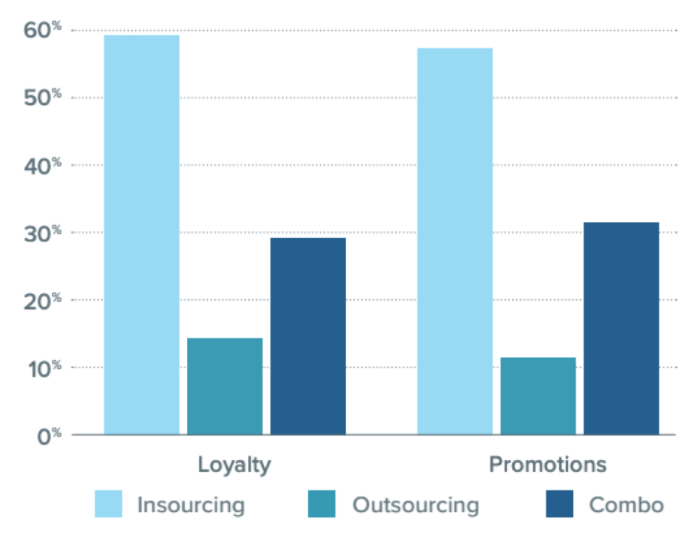
As companies go through digital transformation, they are likely to find that keeping customers engaged is more complex than ever before, with numerous channels and tactics to consider. This means that a combination of both in-house and outsourced expertise is likely to be hugely beneficial, allowing marketers to manage their everyday activities while making the most of external providers for complex tasks and technology platforms.
Outsourcing and personalization
In terms of managing personalization, the many moving parts required when managing data and delivering the right messaging means that a range of specialist skills are required. This is likely why 55% to 69% of campaign functions are managed with external partners, either being fully outsourced or partially.
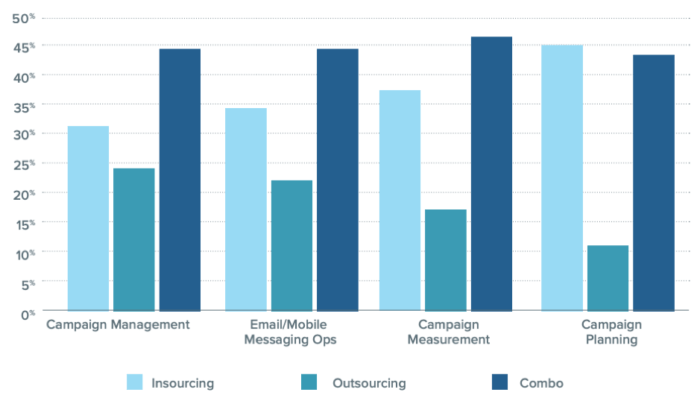
This combination of skills is highly beneficial, allowing you to deliver the best user experience, improve ongoing personalization efforts, spot opportunities and make the most of others’ expertise while ensuring that your marketing team is still as efficient as possible.
Final thoughts
The requirement for more budget to cover technology, data and analysis within marketing is clear from these findings. As more processes, data and tech options are needed to meet the expectations of customers and website visitors, it is likely to reveal gaps in resources and knowledge within marketing departments.
However, there are other areas where budget could be used efficiently to help drive engagement, awareness and sales, so it could be worth exploring where these lay.
Organizations could also benefit from fully assessing what can be done successfully in-house and what could be outsourced in order to get the best results. This will allow for better allocation of resources and could see existing budgets stretch to cover more.



